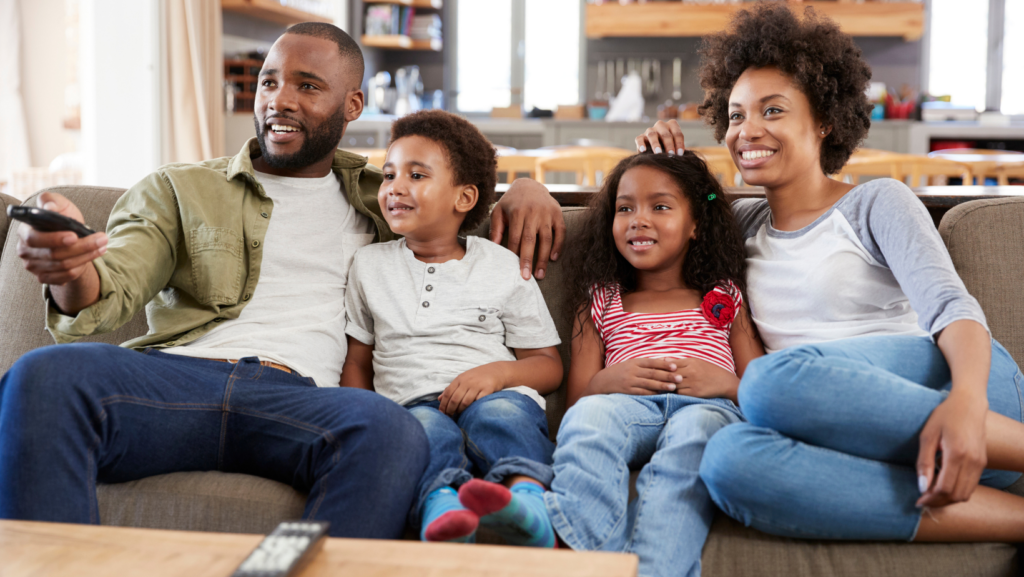In the vast landscape of television programming, there’s a genre that’s stood the test of time – family life television. It’s a slice of the entertainment pie that’s both comforting and compelling, offering viewers a mirror to their own lives or a window into others’.
So, let’s take a closer look at this genre, exploring its roots, evolution, and enduring appeal. This journey might just give you a new appreciation for the shows that have become a part of your own family’s story.
Family Life Television

Family life television’s progression, traced back decades, intertwines technical advancements and cultural shifts. Initially surviving on laugh tracks and stereotypical characters, these shows transformed, reflecting the diversity and real-life struggles of families. Excavating into the past, around the 1950s, sitcoms, displaying idealized visions of family, dominated the television landscape. However, the late 1960s and early 70s marked substantial changes, with programs exploring previously uncharted territories — challenging gender roles, and discussing controversial issues.
For instance, sitcoms like ‘All in the Family’ and ‘The Brady Bunch’ began to mirror evolving societal norms. Fast forward to the 80s and 90s, family life television embraced more diversity and realism. Shows such as ‘The Cosby Show’ and ‘Roseanne’ addressed race relations, economic hardship, and work-family balance, resonating with audiences beyond demographical limitations.
Popular Family Life Television Shows
Continuing from the evolution, let’s delve into some popular family life television shows. ‘Modern Family’ incorporates humor while showing life’s unpredictability, while ‘Parenthood’ portrays the ups and downs of raising children. Reality shows like ’19 Kids and Counting’ present large-family living with its unique dynamics. On the drama front, ‘Six Feet Under’ explores family relations against the backdrop of a funeral home. These shows resonate due to their relatable depiction of familial joys and challenges.
Impact of Family Life Television on Society
Family life television exerts a profound influence on societal norms and behaviors. It doesn’t just entertain viewers; it educates them about the intricacies of family relationships and opens dialogues on contentious societal issues.
For instance, interracial relationships, adoption, and LGBT+ issues, traditionally viewed as taboos, gained acceptance over time, courtesy of shows like ‘Modern Family’, ‘The Fosters’, and ‘Glee’.
Indubitably, the impact of family life television on society is multifaceted, affecting not just how society perceives family, but even how it communicates and evolves. family life television’s influence spans societal norms, behaviors, lexicons, and beyond.
Pros and Cons of Family Life Television

The appeal of family life television resides in its familiarity and relatability, yet it comes with its advantages and drawbacks. On one hand, these shows offer relatable storylines, showcasing a range of familial dynamics, thereby fostering feelings of connectedness. For instance, ‘This Is Us’ delves into complex relationships, making audiences connect with its authenticity. They also tend to influence societal norms and initiate conversations on pressing social issues, like adoption in ‘Modern Family’.
On the other hand, there’s criticism over idealistic representation and perpetuating stereotypes. While ‘The Big Bang Theory’ broke stereotypes around geek culture, it attracted criticism for its limited depiction of women in scientific fields. Also, some argue that these shows gloss over real-life issues, presenting an overly sanitized version of family life, even in reality TV shows like ‘Keeping up with the Kardashians’. Critics claim they set unattainable standards and foster unrealistic expectations.
Seemingly, the dichotomy of family life television underscores its polarizing appeal. With its wide-ranging dynamics, it simultaneously champions societal development and reinforces archaic standards. Consequently, it’s the viewer’s perspective and personal comprehension that ultimately determines the overall impact of these shows.
Must Know
Family life television has indeed come a long way. It’s been a journey from the idealistic 1950s to the present day’s diverse, authentic portrayals. Shows like ‘All in the Family’ and ‘This Is Us’ have broken stereotypes, while ‘The Simpsons’ and ‘Family Guy’ have used satire to critique societal norms. Reality TV, like ‘Keeping up with the Kardashians’, has given us raw, unfiltered glimpses into the lives of families. It’s clear that these shows have not only entertained us but also educated us on family relationships and societal issues.
